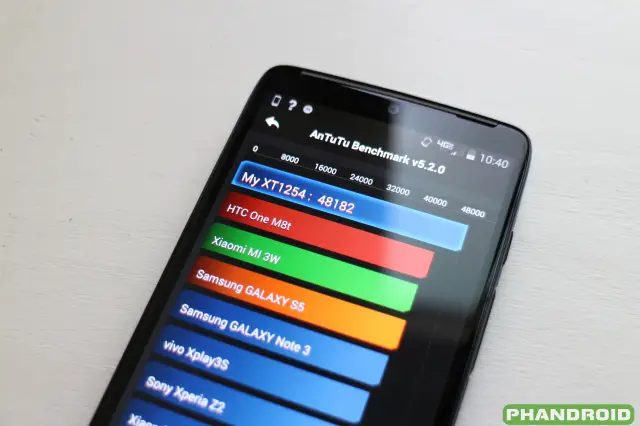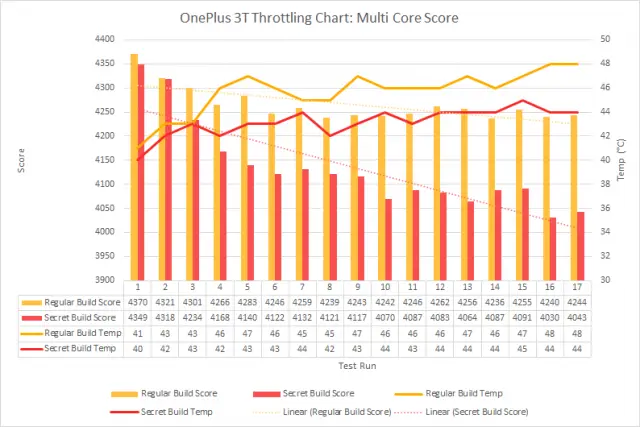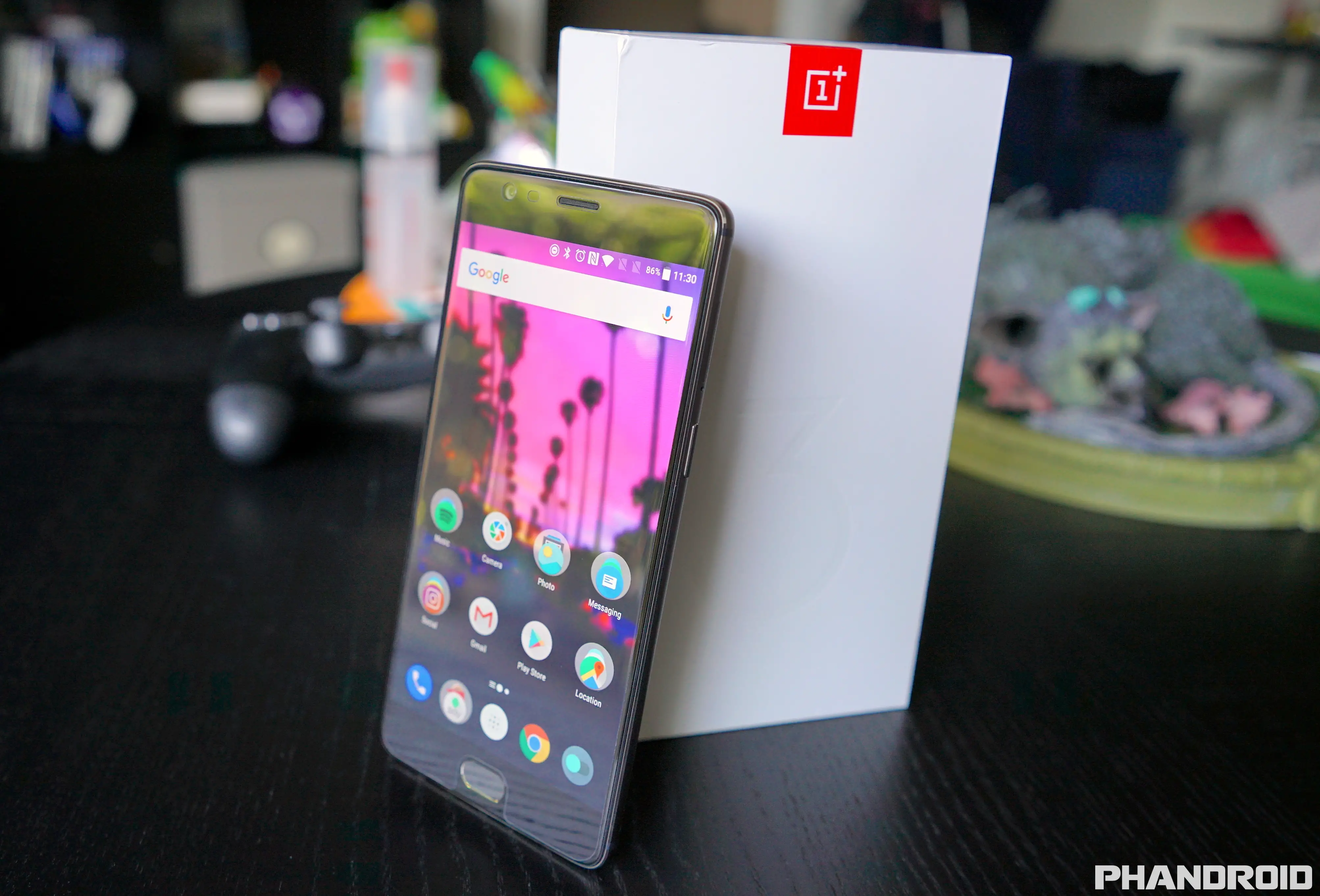
A few years ago it was discovered that popular manufacturers like Samsung and HTC were targeting benchmark apps by boosting CPU frequency when those apps are detected. AnTuTu even got around to creating a separate app so users of the Galaxy S5 and the HTC One M8 could accurately test the true benchmark data of their phones.
Now XDA Developers is reporting that OnePlus hasn’t given up its old tricks when it comes to targeting benchmark apps to affect the outcome of the phone’s performance. The site reports that when attempting to understand how Qualcomm achieves faster opening speeds on the Snapdragon 821, some odd behavior was discovered with the OnePlus 3T that didn’t show up in other phones powered by the same processor.
Our editor-in-chief, Mario Serrafero, was using Qualcomm Trepn and the Snapdragon Performance Visualizer to monitor how Qualcomm “boosts” the CPU clock speed when opening apps, and noticed that certain apps on the OnePlus 3T were not falling back down to their normal idling speeds after opening.
XDA Developers believes that OnePlus is targeting specific applications like AnTuTu and Geekbench to keep clock speeds up in order to pump up their benchmark scores. Geekbench and XDA teamed up to determine once and for all if OnePlus was cheating by targeting applications and the answer is yes, yes they are.

OnePlus was makings it CPU governor more aggressive, resulting in a practical artificial clock speed floor in Geekbench that wasn’t there in the hidden Geekbench build. It wasn’t based on the CPU workload, but rather on the app’s package name, which the hidden build could fool.
I’ve included the multi-core throttling results discovered by XDA, but you can view the single-core and a comparison of the two on the official report. What’s worse is that OnePlus isn’t the only manufacturer discovered doing this. While the report focuses mainly on the OnePlus 3T and its throttling, Meizu’s also got caught targeting benchmarking applications with the Meizu Pro 6.
To OnePlus’ credit when XDA reached out to them about the issue and asked them to address it, they said that this feature is in OxygenOS to help games and other performance-heavy apps perform better on their phones and that targeting benchmarking applications will be removed.
‘In order to give users a better user experience in resource intensive apps and games, especially graphically intensive ones, we implemented certain mechanisms in the community and Nougat builds to trigger the processor to run more aggressively. The trigger process for benchmarking apps will not be present in upcoming OxygenOS builds on the OnePlus 3 and OnePlus 3T.’
Still, it’s very disheartening to see manufacturers still relying on these types of tactics in order to artificially boost their phone scores on popular benchmarking applications.











Comments